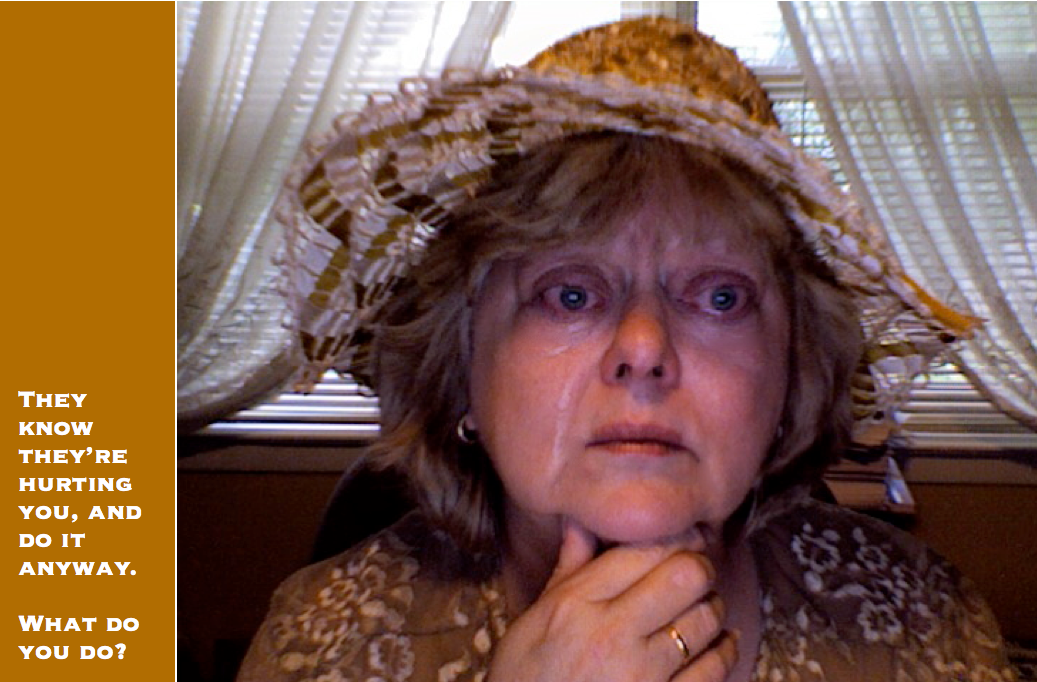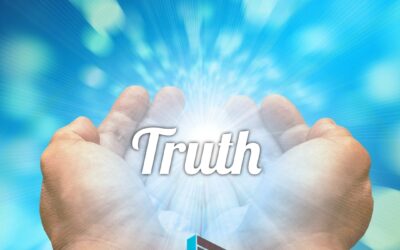LIVING OUR BEST LIFE: PART 1
WEDNESDAY, AUGUST 13, 2008
WARNING: This is a no-edit zone…
LIVING OUR BEST LIFE: PART 1 ©2008, Vicki Hinze
We all want to live the best life we can live. We have many different views on what our best live is and how to attain it. We also go about seeking our personal best in different ways. Because we are all universal and yet unique, that we do this is evidence of God’s wisdom. One life does not fit all…
Being a simple woman with limited perspective of what constitutes my own best life, I decided that the most I could do to help myself and maximize my chances for success was to make a two-prong effort: First, to pray for protection from false steps and poor judgment, and second, to seek the counsel of the wisest of the wise among mortals, whose perspective is not all-inclusive (he was mortal) but it’s surely far broader and more insightful than mine. That mortal was King Solomon. God offered him anything he wanted—anything at all. And King Solomon chose wisdom so that he could rule well. God granted Solomon’s request and bestowed upon him wisdom.
So Solomon had wisdom and he got it directly from God, who does have all-inclusive, broad perspective and He happens to also love us, so we are sure that He wants only what is best for us. Bearing all this in mind, whose advice better to seek on spiritual progress in our relationship with God and on wisdom?
Wanting to learning from that insight, I went to the writings of Solomon, specifically to Proverbs, to see what inspired divine insights he had to share. There were many, but one that really snagged my focus was that wisdom is the way to God.
In every Christian beats the heart of one who wants an up-close-and-intensely-personal relationship with God—and wisdom is the way. Solomon says it with a bit more polish and finesse in Proverbs 4:7 (KJV): “Wisdom is the principal thing: therefore get wisdom: and with all that getting get understanding.”
The upshot is that if you attain wisdom, embrace it, live it, then understanding comes with it, and when you have both wisdom and the understanding that comes with it, those things will bring you to honor, and that results in wisdom gifting you with “an ornament of grace and a crown of glory.”
Solomon, in these divinely inspired writings, had a lot to say about wisdom, and much of it put down a road map for the rest of us in the form of traits and virtues that are aspects of wisdom. If we adopt the aspects and make them our own, then in a real sense they become part of us—we’re embracing them, and that does carry us down that spiritual path and lead us to God.
That makes knowing these traits—(How can you adopt what you don’t know?)—critical to spiritual development. As I read, I became engrossed and had to go back and read portions of the text again. I love it when that happens. When I get so caught up in the Word I forget to make notes. But go back I did, often several times, and what follows are those traits and virtues I noted. Honestly, each one of them is worthy of deep study and exploration on its own. I wrote them down and added my own notes and immediate gut-reactions to them, so that’s what I’ll share here. As you’ll see, I stumble my way a lot and often take the scenic route on this spiritual path. I figure that’s the route God wants me to take for His own reasons or I wouldn’t do it. So I do hope that sharing provides some value… and you’ve the patience to get to that of value to you.
Being wise is…
Having a willingness to learn. Receiving instruction is essential to growth and development. To lack a willingness to learn is to imply (to God and oneself) that you already know all there is to know. Not only about wisdom but about everything, and in adopting and embracing that attitude, you close a lot of doors to knowledge and insight that could have expanded your world and mind. Lost opportunities abound in this kind of attitude, and that’s shutting doors in the face of wisdom that is eager to come to you. So gain or attain a willingness—even an eagerness—to learn. The world is full of fascinating things, and wisdom comes to us through many of them, but we have to be open to seeing them or we miss them—and the fault and responsibility for that is ours, due to our own closed minds.
Developing discernment. With deeper insight and knowledge, applying common sense and compassion, we hone judgment. What appears good isn’t always, and without honed judgment—knowing what to consider, how to weigh what we consider, and why we should consider those things in our decision-making processes—we lack the skills needed to develop and/or exercise discernment. Our judgment isn’t its best, which means we’re apt to make far more mistakes and errors and to suffer the resulting consequences. If our judgment isn’t at its best, our discernment can’t be at its best, and that means we and our lives are not at their best. Wisdom is eluding us. Sure, we can call on God, but He gave us tools (namely, the Word) and He expects us to use them. Actively working to develop discernment is essential to wisdom. Without discernment how can one know wisdom? What then does one embrace? Oh, yes. Develop discernment is high on the wisdom priority list.
Respect for authority. Any believer sees the wisdom in respecting God’s authority. Now when it came to respecting the authority of kings who held people as slaves, it got a little tougher. No small part of that is because that way of live is so alien to most of us. We’ve been gifted with freedom; we can’t exactly relate. We also don’t live in a time when if one person in the community chain fails to do his or her part others die. That inter-dependency and reliance is far less pronounced in society today. But then it was very much the reality of life then. Authority in the form of laws keeps us civil; there’s wisdom in civility—far more than in the obvious lack of it, which is chaos.
But wisdom and authority goes deeper, into the deepest interrelations in our lives. As believers we are always under God’s authority, though typically the first knowledge of authority evident to us happens when we’re children in the form of parental authority. Then our circle broadens and those with authority over us expands, as does the types of authority they have over us. It’s dynamic, depending on their role and place in our lives and their influence on us. Some claim authority over us, and some accept the authority we grant and freely offer them. Jesus’ “render unto Caesar that which is Caesar’s” comes to mind. So does the mentor, those we admire, wish to emulate; those we love and wish to indulge. Whether parent, teacher, boss, colleague, mentor, eccentric aunt, judge or police officer, respecting authority and wisdom walk hand in hand. Lacking respect for authority estranges one from wisdom.
Yet there’s another element to this that is often overlooked because it isn’t always viewed through the lens of respect for authority. That aspect is ownership, whether it relates to someone’s time, methods, or even their property: real, personal or mixed.
For example, consider discretionary time. Generally we have little time that isn’t committed, but what there is of it in our lives falls under our authority. If we freely offer it to another, that’s our personal choice and us exercising our authority. But if another infringes upon it (by tactic such as guilt) and we allow it, then not only is that person lacking respect for authority but, in allowing them to infringe, we are lacking respect for our own authority.
On methods, I’m not talking about an employee/employer situation but more personal ones. When someone does something, whether for themselves, for us, or for others, the method they use might well not be our method, but that doesn’t mean it’s wrong or ineffective only different. It’s their effort, their choice, and their authority. As recipients, we should respect that.
On property. A very personal example. Someone you know comes into your home and uses your computer without your permission—as though doing so is some innate right. Or say you have a special food item or drink that is expensive and you purchased as a special treat. A houseguest gorges or guzzles, consuming not just some but all of it. Is that houseguest expressing respect for your authority or ownership over your property? Is s/he expressing respect for the owner? And probably worse, is the houseguest expressing a reflecting of his/her own discernment and judgment by not considering that this is or was a special treat that the owner likely worked long and hard to get?
Some would consider those things inconsiderate, and they are, but they attest to a deeper sense of entitlement that doesn’t honor the person who does them and certainly doesn’t acknowledge much less respect the authority rightfully belonging to the owner who shared. There’s an arrogance in this type behavior that places one’s self above others which is in direct opposition to the teachings of Christ, who said that the greatest among us are not to be served but to serve. See what I mean about that perspective lens? I can’t imagine Jesus going into anyone’s home and taking the best of their best, leaving them without, and seeing that as treating his host with respect. He just wouldn’t, and that’s a clear-cut sign we shouldn’t either. There’s no humility in it, no grace—and both He and Solomon talked about humility and grace being traits in wisdom.
Being humble. Two things come to mind on this. The first is that none is as good or as bad as we or they believe. There are facets upon facets that combine to form these judgments, and even when they’re our own, we likely don’t fully understand them all—which, if you think about it, could be a key reason we’re warned against judging. The second thing that came to mind immediately is a memory from my teen years. A guy was trying hard to impress my dad, going on and on about his own superior intellect and accomplishments. My dad clearly wasn’t impressed. Not a very flattering admission on my part, but I remember wishing the guy would just hush. With his every word, he came across as more and more obnoxious, and as if he was superior to everyone else on the planet and just tolerated others’ existence. After he left, I asked my dad why someone so smart didn’t know better than to think or say things like that. My dad shook his head and said, “Tiger, if you’re smart, you don’t have to tell anyone. They’ll figure it out for themselves.”
I remember thinking on that for a long time. Clearly, my dad didn’t think this guy was as smart as claimed, though Dad didn’t say that. But in figuring it out for myself, I digressed into wondering if maybe he acted as he did in a kind of preemptive strike—letting others know he was smart so they didn’t tag him otherwise. And then I wondered if that was so, then who or what had happened to him to make him feel so “not smart.” What if he hadn’t been bragging but justifying himself? What if he had been told over and again how stupid he was and he had been determined to prove his accusers wrong? He’d accomplished all these things, learned all these things, and yet some part of him must still be fighting that horrible self-image.
Whether he was arrogant or damaged and struggling, I have no idea. But I better understood my dad’s response then, and the sense of annoyance I’d felt melted under the possibility that his actions stemmed from pain rather than an attitude of superiority.
I learned a lot about humility that night. Not fake humility, but the real deal. We all have special gifts and special trials. If we seek, we eventually become acquainted with our own on both. But even seeking diligently, we merely glimpse the gifts and trials in others. Knowing it, and refraining from thinking too highly (or lowly) of ourselves or too lowly (or highly) of others, holds wisdom. We are all extraordinary by grace, and that being a gift from God, inspires humility whose wisdom is inherent.
NOTE: due to length, I’m ending Part 1 of this entry here. Part 2 will be posted as soon as I’ve finished it. Pondering, exploring is in-progress…
Blessings,
Vicki
Vicki Hinze
www.vickihinze





